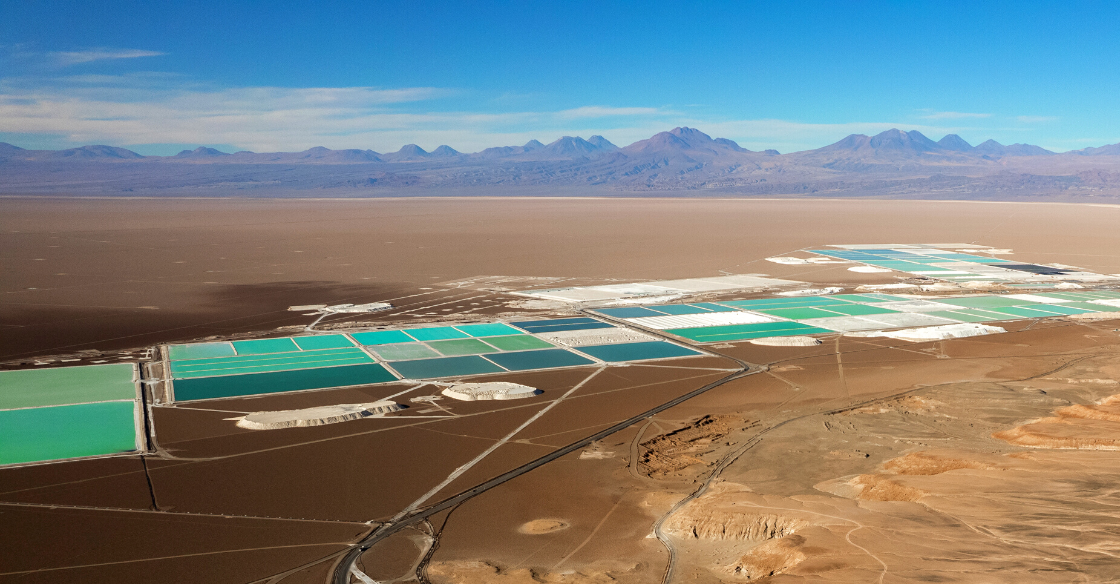The Additional Minerals Reporting Template (AMRT), previously known as the Pilot Reporting Template (PRT), is a free, standardized tool that helps companies gather crucial due diligence information on minerals beyond conflict minerals (3TG) and extended minerals, which each have their dedicated reporting templates. Developed by the Responsible Minerals Initiative (RMI), the AMRT is designed to enhance supply chain transparency, making it easier for companies to ensure responsible sourcing practices and meet regulatory and ethical expectations.
Download the AMRT 1.3
The RMI regularly releases updated versions of the AMRT. Version 1.3 was released in October 2025, replacing the previous AMRT 1.21. The latest version includes:
- An added Smelter Look-up tab containing standard smelter list for all minerals in AMRT scope
- Updated minerals input on Declaration tab
- An added notice of Enter Minerals/Metals in Scope
- A change to Product List to include "Requester Product Number" and "Requester Product Name"
- Updates to the Smelter List and Mine List tabs
Leveraging the AMRT for reporting on additional minerals of concern
The AMRT is designed to help downstream companies collect and disclose information about minerals of concern within their supply chains in a standardized format. While templates exist for gathering data on 3TG via the Conflict Minerals Reporting Template (CMRT) and on extended minerals via the Extended Minerals Reporting Template (EMRT), there is no standardized process for other minerals of concern.
Many companies only monitor and report on their use of 3TG and extended minerals, lacking a process for tracking other minerals. While some companies have developed their own methods, each manages this differently with unique data collection templates, leading to inconsistencies. This lack of standardization causes supplier fatigue and creates inefficiencies across the supply chain.
The AMRT offers a streamlined solution for companies to request supplier data on any minerals of concern. It enables businesses to decide whether to implement additional reporting outside of the CMRT and EMRT frameworks.
What minerals are included in the AMRT?
The AMRT is not mineral-specific; rather, it assists companies in collecting due diligence and sourcing information for any mineral of concern. The template enables the user to determine its scope and allows input of up to ten minerals.
How does the AMRT differ from the CMRT and the EMRT?
While the AMRT, the CMRT, and the EMRT are all similar, they serve different purposes. The AMRT collects information on any minerals of concern, while the CMRT and EMRT collect information on conflict minerals and extended minerals, respectively. RMI developed all three reporting templates.
Discover how to streamline your extended minerals due diligence using the Extended Minerals Reporting Template in our comprehensive e-book.
What should companies do with a completed AMRT?
The RMI recommends that companies share completed AMRTs with their customers and make them publicly available on their websites, similar to how they already handle CMRTs and EMRTs.
Does the RMI collect AMRTs from companies?
While the RMI does not collect AMRTs from non-member companies, it does gather them from its members to build known smelter lists and establish certification processes for minerals identified as critical pinch points in the supply chain. This process enables the RMI to pinpoint the minerals that leading companies are most concerned about, share that insight, and develop best practices for monitoring and reporting.
How will the AMRT shape future regulations for minerals of concern?
As the RMI collects AMRT data, it will be standardized, correlated, and reviewed. This process will enable the RMI to produce lists of smelters not involved in abuses, similar to how it has done for 3TG and extended minerals. These lists will be developed over the next few years. The AMRT will also help identify which minerals present the most significant pinch points in the supply chain and are sourced most frequently, providing insight into which minerals could benefit from additional regulation.
In the long term, the AMRT will offer companies valuable information on which minerals are most critical to the industry and likely to attract attention from regulators, customers, and other stakeholders. Additionally, companies will be better equipped to identify which smelters, processors, and refiners are the safest to work with.
Source minerals of concern responsibly with Source Intelligence
At Source Intelligence, we provide the industry’s most comprehensive responsible minerals sourcing solution, supported by powerful software and expert-managed services. Whether you’re gathering supply chain data on select minerals of concern, conflict minerals, extended minerals, or all three, our solution is designed to help you effectively manage risk. From enhancing supplier engagement to improving data validation and streamlining report generation, we are your partner in responsible minerals sourcing. Explore our Minerals Reporting and Due Diligence solution to learn more.
![]()




